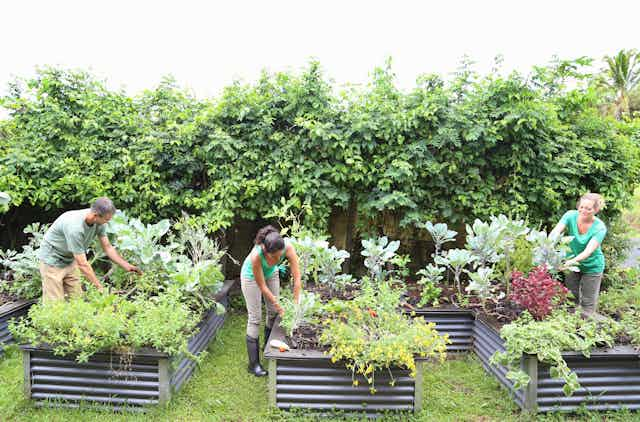The number of people taking part in volunteering in the UK is decreasing. This is bad news, but it is not surprising.
The social restrictions imposed as a result of COVID-19 do explain some of this decline. Of course, we went out less, and some regular volunteering was cancelled. The pandemic did also create new opportunities for mutual aid and informal helping out, and for people to become involved in helping deliver local services to their friends and neighbours. But there has been a longer-term fall in volunteer numbers that pre-dates COVID-19.
There are good reasons why people do not volunteer. They may have work commitments, childcare or other caring responsibilities. They may not know how to get involved, or not feel welcome. And the obstacles that prevent people from volunteering are likely to have become more significant over the last few years, in particular due to the cost of living crisis.
Steady decline
The government has monitored volunteer participation in England from 2001. Between 2001 and 2013 the number of people taking part in volunteering each year in England remained fairly consistent – maybe even increasing slightly. Around 40% of people said they volunteered at least once a year and around 28% volunteered at least once a month.
However, after a peak in 2013-14 volunteer numbers have fallen. The latest government survey found that only 16% of people in England took part in formal volunteering once a month in 2021-22.
Similarly, a report by the Charities Aid Foundation shows that number volunteering has been in steady decline for the past five years – down 1.6 million people since 2018. Another survey, carried out in 2022 by the National Council for Volunteer Organisations, shows declines in various voluntary activities.
Work commitments and caring responsibilities are significant reasons for not volunteering.
Taking part in volunteering is also generally affected by age. Young people aged 16 to 25 may volunteer through school, college, or university or through social clubs, because they have the time and are motivated to get skills and experience to benefit them later on.
There is a drop-off in participation during the transition from youth to adulthood when people move into work and acquire more caring responsibilities and so have less free time for volunteering. There is then generally a gradual increase in volunteering with age as people regain spare time – and a second drop-off as people move into old age and are more likely to be burdened by poor health or cut off from social connections.
Who misses out
The evidence on barriers to volunteering also shows a relationship between volunteering and social advantage. Wealthier, more educated, more socially connected people have more opportunity to volunteer than those living in more challenging social circumstances.
This perhaps better explains the gradual decline in volunteering over the past decade or so. As people’s lives have become more challenging as a result of falling living standards and rising costs it is not surprising that they do not have the time, money, or motivation to volunteer.
If the cost of living crisis in the UK continues, it would not be a surprise to see volunteering numbers decline further. People will have to continue to focus their attention and effort elsewhere.

This is a problem – because volunteering is beneficial to those doing the volunteering as well as the cause they are supporting. Volunteers can gain skills, experience new cultures and communities and increase their employability – and research suggests volunteering improves mental health and reduces mortality risk.
If particularly groups of people – such as people with disabilities and people from ethnically diverse and socially disadvantaged communities – are less able to volunteer, then they miss out on any benefits.
Social inequalities
The whole notion of volunteering could widen rather than reduce social inequalities: the gap between the most well-off and the poorest. Growing inequalities already have negative effects on the health and wellbeing of many people and their communities.
Over the past decades there have been multiple attempts to support UK volunteer numbers. These include David Cameron’s coalition government’s Big Society and The Big Help Out as part of the coronation celebrations.
However, the focus of these strategies and programmes is inevitably on individuals – trying to tap into their personal motivations – rather than addressing the deeper social issues that affect participation.
Getting more people volunteering again means making sure people have the time, energy, and inclination to get out and help out in their communities. This will be stymied if they are having to worry about paying bills, getting a secure job, finding good quality childcare or waiting for a doctors appointment. It is unclear whether participation rates will recover until broader social inequalities and issues are addressed.

